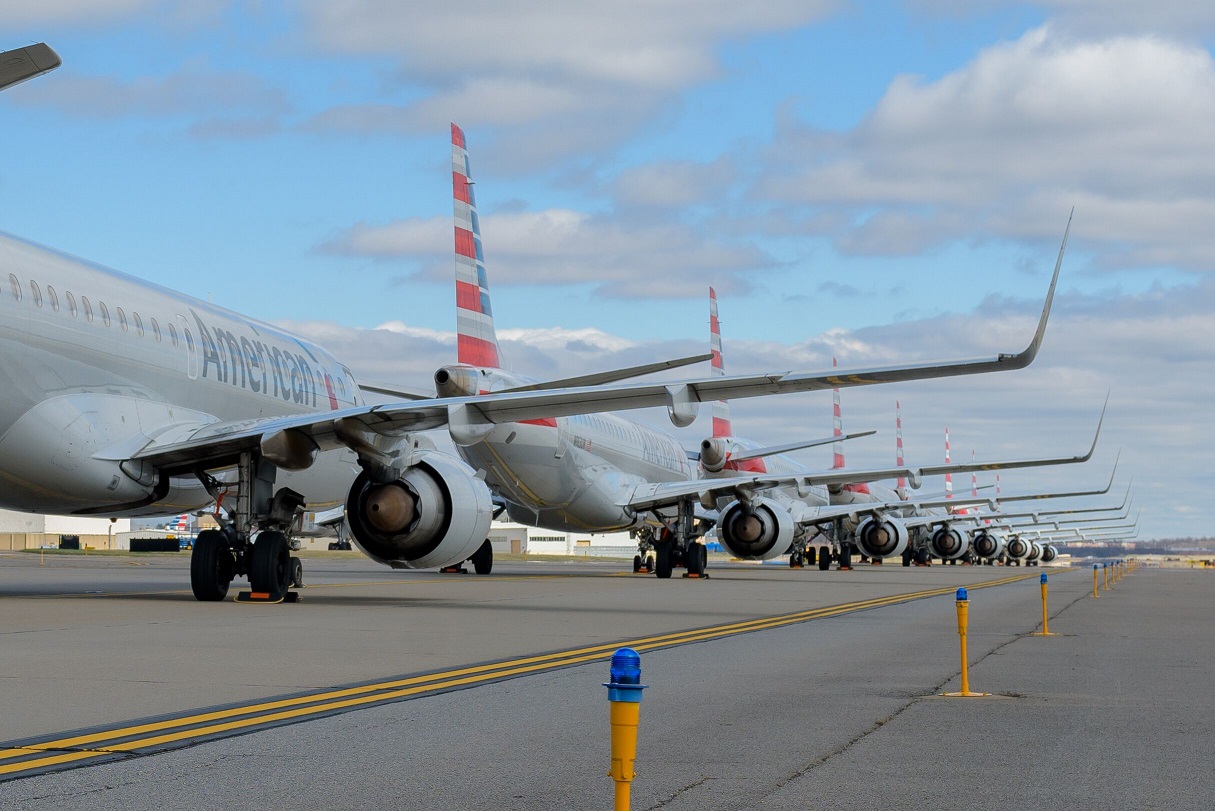At the Bernstein Strategic Decisions Conference this morning, American Airlines CEO Robert Isom declared that the carrier’s plan to eliminate mileage-earning from some travel agency tickets is off. It was too confusing. They still care about moving to NDC (new distribution capability), which mileage-earning on agency tickets was a lever to push agencies to adopt, but it is something that will happen “over time.”
In February American announced mileage-earning would be restricted to tickets that were booked direct, through airline partners, or – for non-basic economy fares – through preferred travel agencies.
Preferred agencies was based on increased ticket sales through NDC channels through which ancillaries can be sold and which costs American less.

This was supposed to happen May 1, was pushed off to July, and now will not happen. It’s a first day change with Chief Commercial Officer Vasu Raja’s departure. Raja had been committed to direct sales, and de-emphasizing managed corporate travel, betting that they could fill planes at higher fares without discounting. However American was not picking up the business travel uptick that Delta and United have, lowered its earnings guidance, and angered partners like British Airways who rely on managed business travel contracts to fill its premium cabins across the Atlantic.


Now we know the primary reason for Raju’s departure.
I’m the Founder & CEO of my company and we had travel contracts with American which gave our company benefits (like the ability to “grant” a small handful of CKs to employees; I got one of course) but with the new setup, there is less incentive for me to keep our company excluding to American for travel and simply allow other carriers which we have been doing. Now they’re realizing it, as we told them they would when we saw the new program and they declined to let us keep the status quo.
DUH.
Advance bookings in business markets must have been WAY down.
AMF, Vasu
My company had an AAirpass membership- with that gone a lot of people are booking away despite being DFW based, especially for long haul. Not shocked to see this shift.
I remember a lot of us commenting on this blog that this plan most likely wouldn’t work out as the visionary thought and here we are.
VASU AND MANY OTHERS AT AA MUST GO!
THE BOARD OF DIRECTORS NEED TO WAKE UP!
Many years ago, in my very first job, the owner taught me a very important lesson. “Never make people wait to pay you money.” The principle still applies. If you make it difficult for people to buy your product they will shop elsewhere. I don’t understand how so many businesses get this wrong or have to learn it the hard way. The airline industry already has convoluted pricing. Don’t make it harder than it is. I’m glad AA got spanked on this.
Who would have thought actively disregarding business travelers (the ones that often don’t care about ticket prices) would not work out well for American?
The headline is a good reason why you would benefit from an editor with an elementary understanding of grammar.
What play on words can be done with the name Vasu Raja that cleverly makes light of his departure ?
Power of the travel advisor community in shifting market share when it matters. AA Phkd around and found out.
Was never a fan of Vasu’s ethos of, “the network trumps all other considerations.” He and Brian Znotins seemed pretty close, I bet he had a hand in recruiting Brian, they were like the dynamic-duo of network planning and revenue management. But let’s be real, Vasu’s not the sole originator of NDC; no project this big happens in a vacuum. The problem-statement and solution architecture probably came out of tech-ops, some mid-level finance guys crunched some numbers, the rollout strategy was brainstormed and written-up by a few directors from various departments, and then presented it for approval in the C-suite, likely with some iterating.
At the very least, the buck stops at Isom, he had to have had the final word, and if he just naively consented because the guy on the other side of the table was shouting louder, then he’s negligent. Likewise, if tech-ops reports into the CFO at AAL, as it does in many legacy non-tech businesses, then Devon May would’ve had to be involved pretty early on, not just for the final stakeholder decisions. If Vasu was the point-man / SPA for the project, then he’s guilty more than anything of aggressively pursuing and executing a bad rollout strategy that others had to have agreed to.
The guy had his share of bad ideas that’ve contributed to the current state of AA, but as others have pointed out, if there’s anything he had the right mindset on, it was championing the power of AAdvantage by ensuring a value-proposition for consumers (dynamically-priced international premium awards notwithstanding). To that end, I have a pretty hard time believing he originated, let alone championed this specific idea of using AAdvantage as leverage to twist the arms of OTAs. That seems like a good way to piss off a LOT of casual, non-savvy leisure travelers that just book their tickets on Expedia, as well as average business travelers that book through Concur and such.
Lots of articles and comment chatter over the past day have suggested he comes off as a fairly smart guy, if a bit of an a-hole… If one of your goals is to maintain the strategic position & consumer perception of AAdvantage, then this decision would be actually brain-dead. Find literally any other lever to pull…